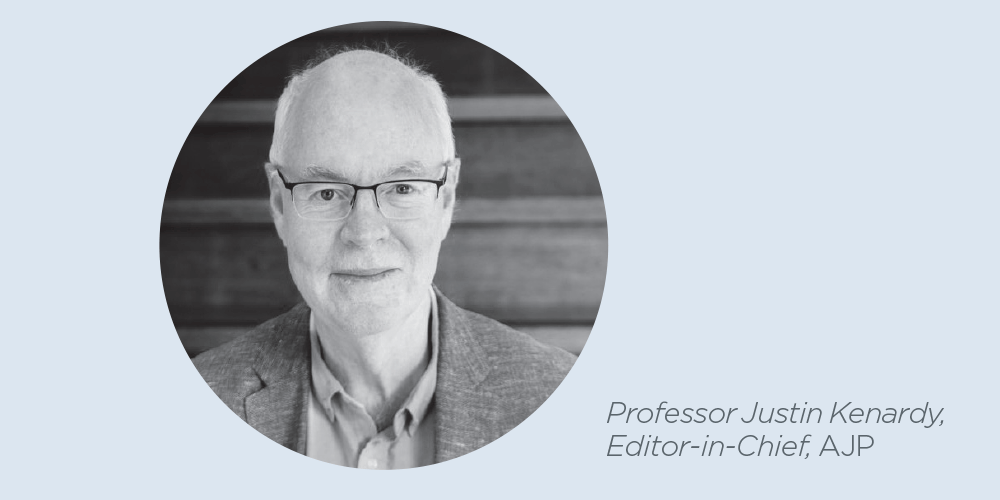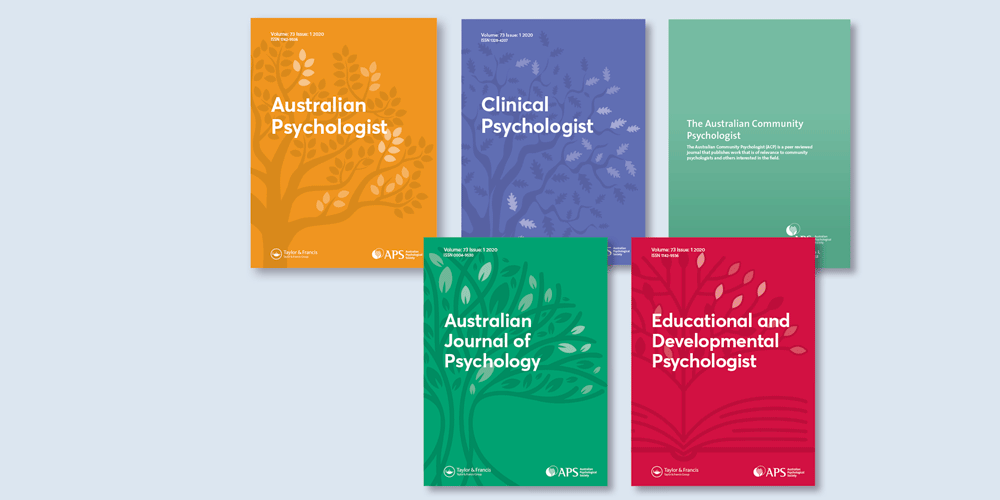The APS is championing open access (OA) for AJP to increase the discoverability, use and impact of members’ research in psychological science. To date, APS journals have supported optional OA in our journals, and we are pleased to take this next step in embracing OA options for our authors and the membership.
Members will have the opportunity to submit research to the journal, with the article processing charge (APC) waived as a membership benefit for full members at the discretion of the editor-in-chief. In preparation for the move to full OA in 2022, AJP is now accepting OA submissions. All papers submitted after 1 June 2021, and accepted for publication, will be published under OA. AJP will peer-review all submitted papers as before, retaining the highest standards of review such that only meaningful and methodologically rigorous submissions are accepted for publication. We are supported in this move by our publisher, Taylor & Francis, a publisher of more than 280 OA journals with experience converting more than 50 journals to the OA model.
There are many benefits for authors that publish via OA in AJP. These include:
- Input from, and dialog with, expert editors and editorial board.
- Rigorous peer-review for every OA article.
- Rapid online publication.
- Immediate access to your article on publication, accessible by anyone, anywhere.
- High visibility and discoverability via Taylor & Francis Online.
- Global marketing and publicity, ensuring your article reaches the people you want it to.
- Freedom to promote ideas more widely and guidance on how to use social media to promote your work.
- Metrics (downloads, citations, and Altmetric data) for your article so you can measure its impact.
- Retention of full copyright of your article through unrestrictive publishing agreements.
- Guaranteed legacy preservation of your article.

Leading the way in transforming AJP into a fully OA journal is the new Editor-in-Chief, Professor Justin Kenardy. We asked Justin a few questions about AJP, including his plans for the journal and what it can do for authors looking to publish their psychology research.
Here is what he had to say:
“The APS has embraced open science and OA to enhance access to scientific knowledge and promote integrity in scientific publication. As a key element of this, AJP’s move to full OA will continue to maintain its high quality as the flagship publication of the Society and will open up the journal to the broader scientific community and public as never before.”
AJP has now converted to full OA. Why the new direction?
The APS has embraced the values of open science which aims for science to become more accessible while maintaining the quality assurance of the scientific peer-review process. AJP, as the flagship publication of the society, was chosen to reflect that commitment.
As editor-in-chief, which topics are you most interested to cover in the journal?
I’m interested in the full range of topics in psychology where the work has an empirical base and methodology. Since we have a range of publications which cover clinical and educational psychology, we see papers covering those areas as being more appropriate for those journals. Also, the journal Australian Psychologist (AP) will focus on topics that have a more national focus and relevance including those covering Indigenous issues and topics.
As a prospective author, what are the benefits of publishing in an OA journal like AJP?
The main benefit is the likelihood that your work will be more widely accessed and therefore have great impact and citation than from an equivalent non-OA paper. As an author you will have a much greater agency in distributing your paper, for example via social media. As well as this you can be assured that the perception of the quality of your paper will be high because of the rigorous standards we apply to the review process.
What support can you give authors and researchers who are hoping to publish in your journal?
We can support the submission process through the excellent assistance provided by Taylor & Francis administration. I am happy to provide advice on suitability of papers for AJP in contrast to the other APS journals. Our editors and reviewers are of high quality and integrity and will provide constructive feedback on every decision to revise. We will also provide a waiver of APC for authors who are members of the APS.
For more information about publishing OA, visit Taylor & Francis’ Author Services page, ‘Choose Open Access when publishing your research’.
For further information or questions about AJP’s transition to OA email: [email protected]